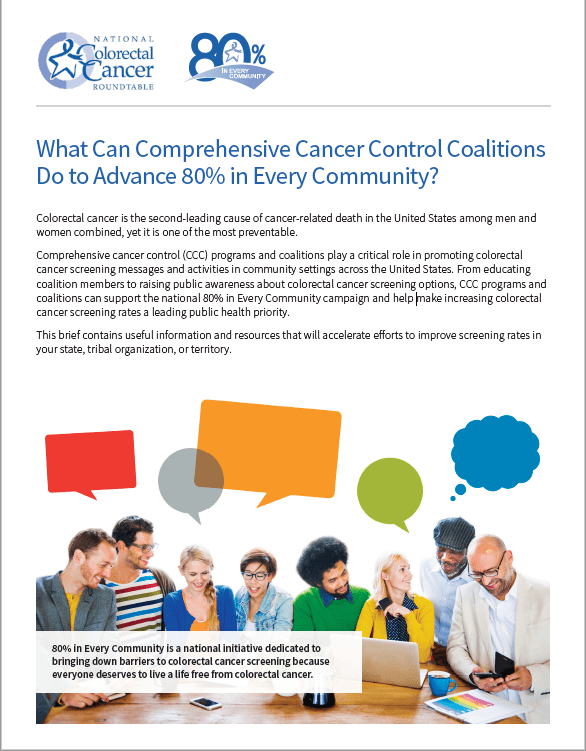Setting: Community
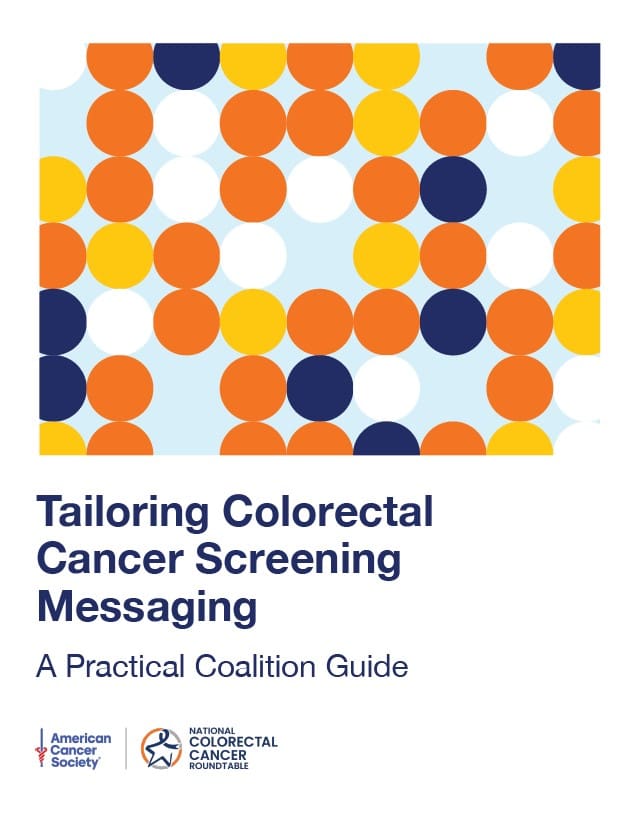
Tailoring Colorectal Cancer Screening Messaging: A Practical Coalition Guide
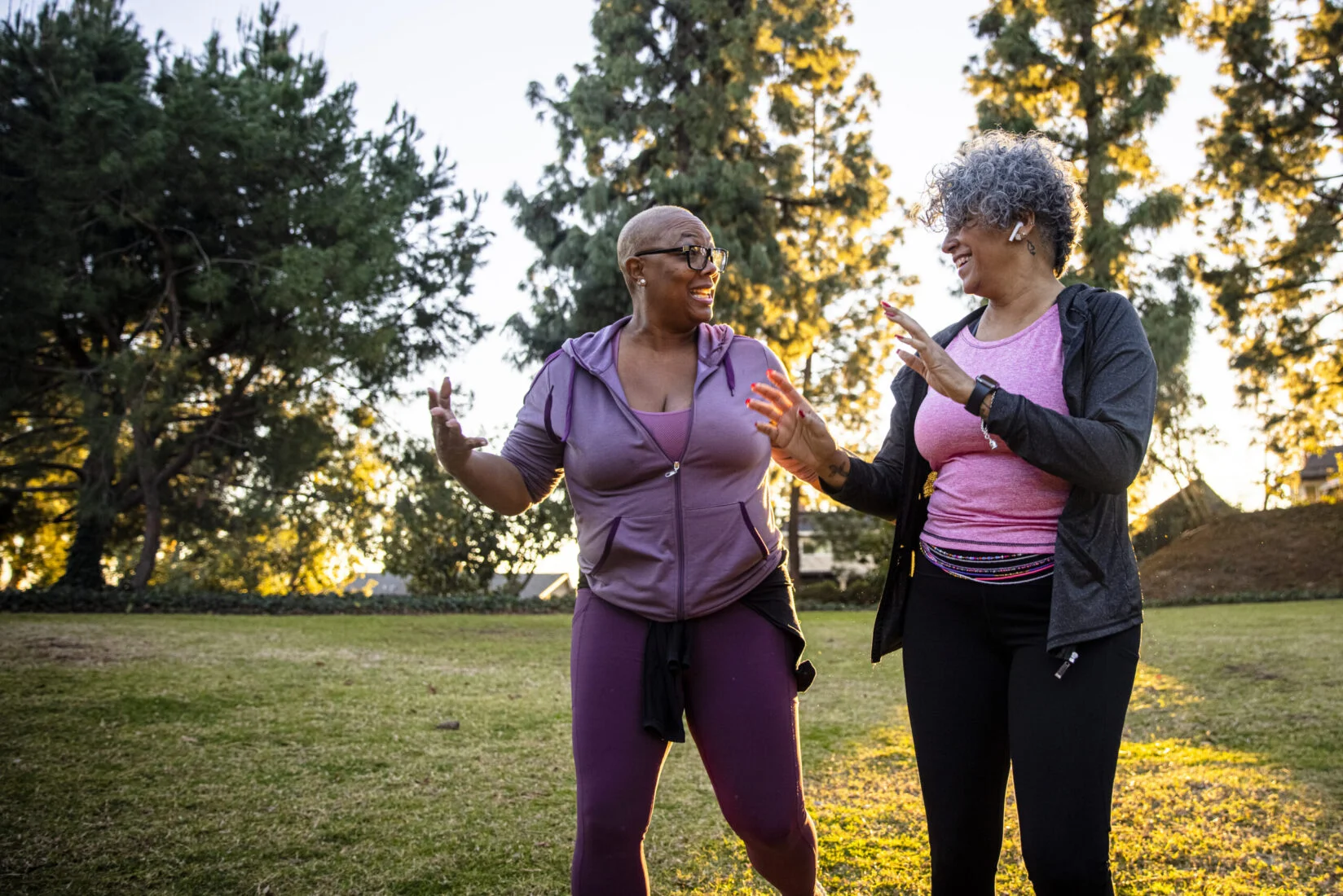
Blue Star Conversations – September 11, 2023
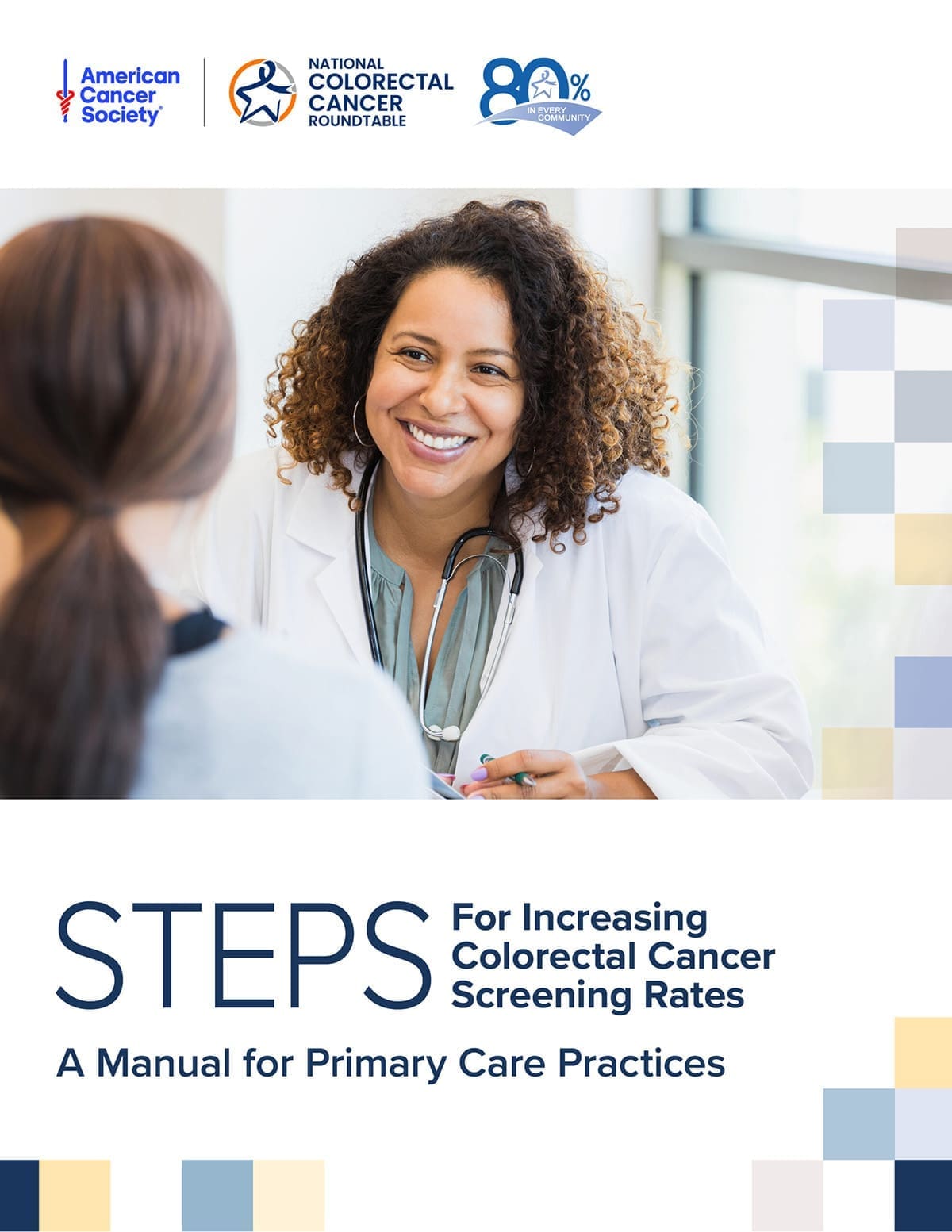
Steps for Increasing Colorectal Cancer Screening Rates: A Manual for Primary Care Practices

Webinar: Field Strategies To Increase Colorectal Cancer Screening And Promote Colorectal Cancer Health Equity In Communities Across The US
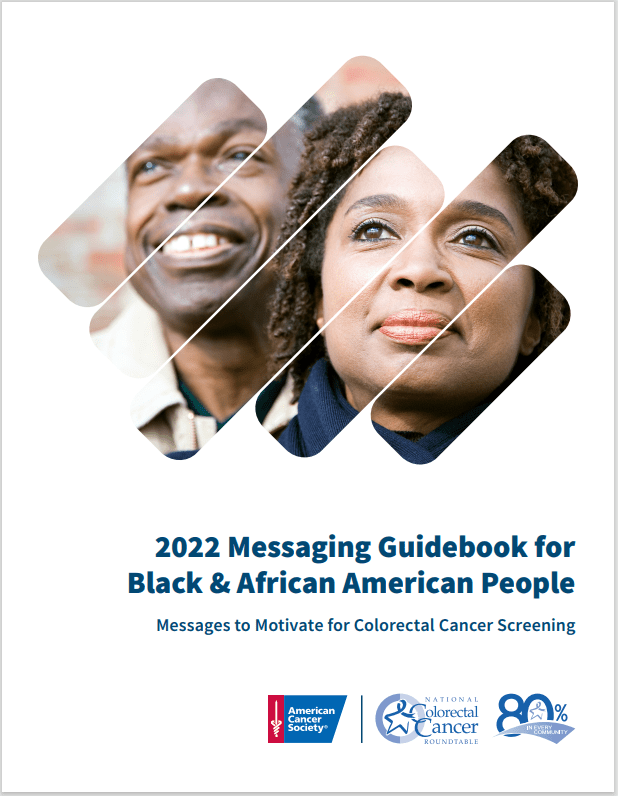
2022 Messaging Guidebook for Black & African American People: Messages to Motivate for Colorectal Cancer Screening

Webinar: 2022 Messaging Guidebook for Black & African American People: Messages to Motivate for Colorectal Cancer Screening – June 21, 2022
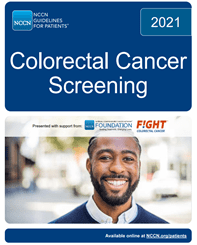
NCCN Guidelines for Patients: Colorectal Cancer Screening – 2021
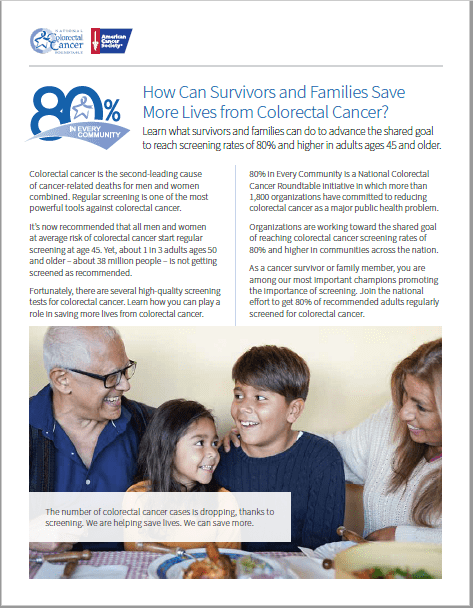
How Can Survivors & Families Save More Lives from Colorectal Cancer?
